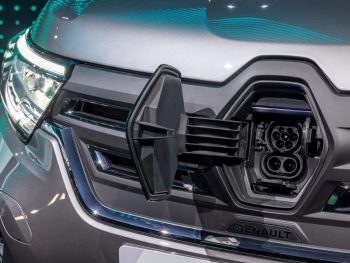The UK’s light commercial vehicle market declined by 27.6% in March to 40,613 units, despite the plate change.

The figures from the Society of Motor Manufacturers and Traders (SMMT) show that supply and delivery issues continue to hamper the sector, including the global shortage of semiconductors, with the March market 38.6% down on pre-pandemic 2019.
Registrations of large vans, which represent more than two-thirds of the LCV market, totalled 29,230 units, down 18.9% on March last year.
Meanwhile, medium-sized vehicles weighing greater than 2.0 tonnes to 2.5 tonnes declined by 27.6%, while small vans fell by 70.8% and pickups dropped 48.4%. The recent high year-on-year demand for 4x4s also slowed, decreasing by 33.3%.
Ford was the market leader in March with a 41.9% share, followed by Vauxhall (10.4%) and Citroën, Peugeot and Volkswagen with an 8.1% market share each.
Take-up of battery electric vans continued to soar in March, with registrations rising by 17.7% year-on-year to 1,909 units in March. This compares to a 29.4% fall in diesel-engined vans.
Year-to-date, electric van uptake increased by 68.9%, giving a market share of 5.8% – more than double a year ago but still some distance behind fully electric passenger cars.
Across the whole of the market, LCV registrations for Q1 fell by 23.6% after three months of consecutive decline. Compared with pre-pandemic 2019, Q1 in 2022 was down 27.6%.
Mike Hawes, SMMT chief executive, said: “The light commercial vehicle market has made a slower start to 2022 compared with the first quarter of last year, reflecting the cyclical nature of fleet operator investment, amid global supply shortages and increasing economic pressures. Targeted support from government is needed to encourage fleet renewal and a full zero-emission van market. The expansion of the Plug-in Van Grant will be a positive for the sector, but equally there needs to be a greater roll-out of suitable charge points to ensure fleet and self-employed van operators in all regions can make the transition.”
Reacting to the figures, the National Franchised Dealers Association (NFDA) said they showed how supply constraints and subsequent product shortages continue to have a detrimental impact on the market; not only affecting automotive, but also other economy sectors, such as the construction industry, whose stability is vital to the van market.
Sue Robinson, chief executive, added: “Although this month’s decline is significant and was anticipated due to the ongoing supply constraints, it is important to note that pent-up demand boosted the market last year.
“Product and component shortages have certainly restrained the market in volume as although the sales of battery electric vans were up 17.7% in March, this was still much lower than the growth in previous months, indicating the downturn in product supply.
“External factors will likely impact the market in the short and medium term, but dealers are hopeful the situation will improve going forward.”

